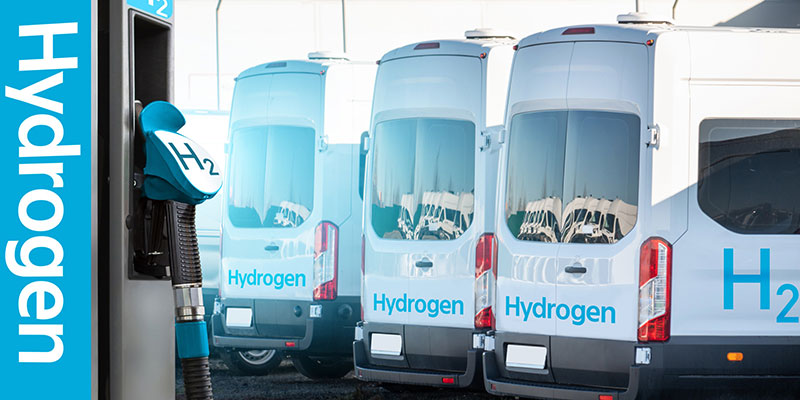A lot of fresh water is required to manufacture the compressed hydrogen used in hydrogen fuel cell vehicles. Water supplies are increasingly limited, which could complicate the renewable energy business.
Fuel cells promise vehicle power with zero emissions
Hydrogen fuel cell vehicles are powered by generating electricity from compressed hydrogen, and their only emission is fresh water. As good as that sounds, though, a lot of fresh water is required to manufacture the compressed hydrogen, and supplies are increasingly limited. Is there enough fresh water for a transition to hydrogen?
A Reuters article warns that the failure of a large hydrogen production facility in Australia from lack of water portends trouble for the hydrogen industry. Some 680 large hydrogen projects on the drawing board will require $700 billion to reach 2030 net-zero emissions goals, and some worry these investments will run into the same problem. Some estimate that it takes nine times the water to produce one kilogram of hydrogen.
Powerful global companies are rushing into the green hydrogen business, “green” because its production is fueled with renewable energy rather than fossil fuels. The downplaying of water problems is raising concerns that companies are not taking water needs seriously
Plenty of Water for Hydrogen
transition to hydrogen, especially considering the water-intensive fossil fuel industry that hydrogen presumably would make obsolete.The research team that produced the analysis explained that even if all the water used to produce hydrogen came from seawater desalinated by reverse osmosis (RO), the heightened energy requirement would not increase the cost of hydrogen much. The team said RO seawater desalination would raise freshwater cost by only 53 cents to $1.50 per cubic meter, which ultimately would raise the cost of a kilogram of hydrogen by only a penny at most.
The analysis estimated that green hydrogen production each year would consume a negligible 1.5 parts per million of the planet’s freshwater supply, or only 30 parts per billion of the seawater in the ocean. That’s less than what is now consumed by fossil fuel-powered energy production and power generation.
The research team concluded that the notion of water scarcity for the hydrogen industry is largely a journalistic phenomenon rather than a scientific or engineering one. Water supplies will not be the limiting factor, according to the team, and research should shift toward increasing the efficiency of the electrolyzers that separate the hydrogen from water
Growth Opportunity for the Water Sector
Bluefield Research believes that hydrogen production could be a new catalyzing factor not only for desalination but for other alternative water sources, such as reclaimed water. The new economic interest in hydrogen also could supercharge project financing for many municipal and private water projects that might not otherwise have access to infrastructure investment capital.
Hydrogen power also would allow the water sector to minimize its own carbon footprint, currently estimated at 2% to 3% of global carbon emissions. The onsite energy storage associated with hydrogen power also would increase resilience to storms and other disasters.
While some downplay the immediate potential of the green hydrogen economy, Bluefield reminds decision-makers that today’s explosion in popularity of photovoltaic solar panel and wind power was hardly foreseen 15 years ago. Bluefield considers the hydrogen future a sea change for water utilities to rival the disruption of smartphones, ridesharing, and video streaming.
Fluence is ready to supply fresh water for hydrogen production from any source and on any scale. For more than 30 years, our experts have been refining water reuse and RO desalination technology, engineering, and know-how. Through our Water Management Services, Fluence can deliver water infrastructure through financial arrangements such as public-private partnership, build-own-operate, and build-own-operate-transfer with no initial investment or ongoing operations and maintenance costs. Contact us to help identify and develop your water resources.

